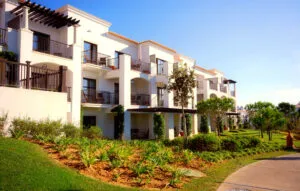What To Know When Buying A Second Property Abroad

Owning a second property abroad has become increasingly popular among UK residents, offering a blend of lifestyle enhancement and investment diversification. Whether you’re purchasing a holiday home, an investment property or somewhere you are looking to retire, purchasing real estate overseas requires careful consideration and thorough research. Here’s what you need to know before taking the plunge into international property ownership for a second home.
How Do I Buy A Second Property Abroad?
When it comes to buying a second property abroad, there are several options available. You can secure an overseas mortgage through your bank, seek financing from a lender in the destination country or consider releasing equity from your existing property if you’re already a homeowner.
Each option offers distinct advantages and considerations, so it’s essential to explore them thoroughly and choose the one that best suits your financial circumstances and investment goals.
What Are the Legal Requirements For Buying A Second Property Abroad?
Before diving into the overseas property market, it’s crucial to familiarise yourself with the legal requirements and regulations governing real estate transactions in your chosen destination.
For example, navigating residency and visa restrictions is a crucial aspect of owning a second property abroad, particularly for UK citizens post-Brexit.
The length of time UK citizens can stay in the EU without a visa is limited to 90 days within a 180-day period, including those intending to reside in their second property for an extended period.
Other considerations to make include property ownership laws, legal representation and tax implications.
Some countries offer investor visas or residency-by-investment programs that provide a pathway to residency for individuals investing in property or other qualifying investments. These programs typically require a significant financial investment and may come with additional requirements, such as creating jobs or contributing to the local economy.
How Do Foreign Currencies And Mortgages Affect Buying a Property Abroad?
Financing the purchase of a second property abroad requires careful planning, especially when dealing with currency exchange and mortgage options. Whether you look at getting a second mortgage, using cash or savings, be mindful of currency fluctuations and their impact on the overall cost of the property.
Explore mortgage options available for non-resident buyers, keeping in mind that terms and interest rates may differ from domestic mortgages. Additionally, budget for the initial deposit and closing costs, including legal fees and taxes, to avoid any surprises during the transaction process.
Be aware if you find yourself owning two properties, whether domestically or internationally, you’ll incur additional Stamp Duty costs. This extra rate applies even if the second property is located overseas.
What Are the Considerations for Rental Income Abroad?
If generating rental income is part of your investment strategy in owning a second property, there are several factors to consider.
Research the local rental market to gauge demand and rental rates, taking into account seasonal fluctuations in tourist destinations. Decide whether to manage the property yourself or enlist the services of a local property management company.
Be aware of legal and tax implications associated with renting out the property, including registration requirements and rental income tax.
Remember that owning a second property abroad comes with ongoing maintenance and management responsibilities. Develop a plan for remote management, including regular inspections and maintenance tasks. Ensure the property is adequately insured against risks such as damage, theft and liability.
Buying a second property abroad can be a rewarding investment opportunity, but it’s essential to approach the process with caution and conduct thorough research. Whether it’s a dream holiday home or a savvy investment venture, the key is to do your homework and seek expert guidance.